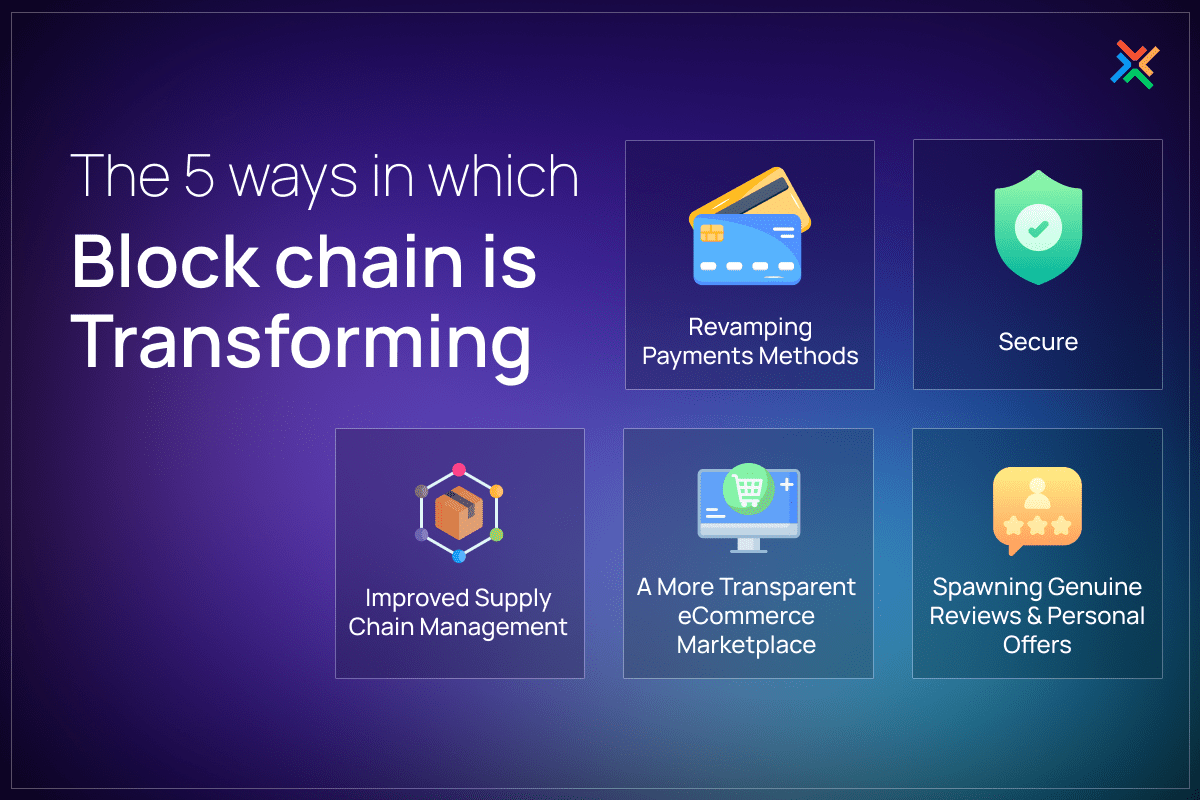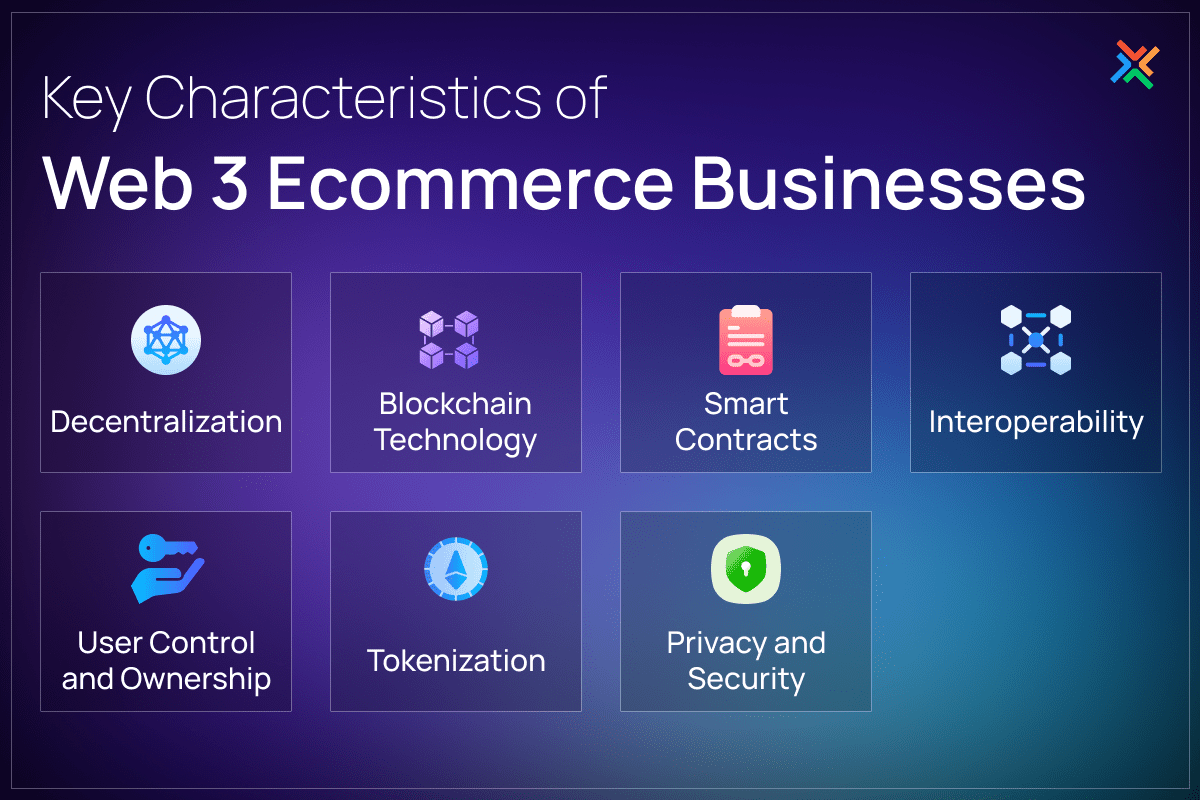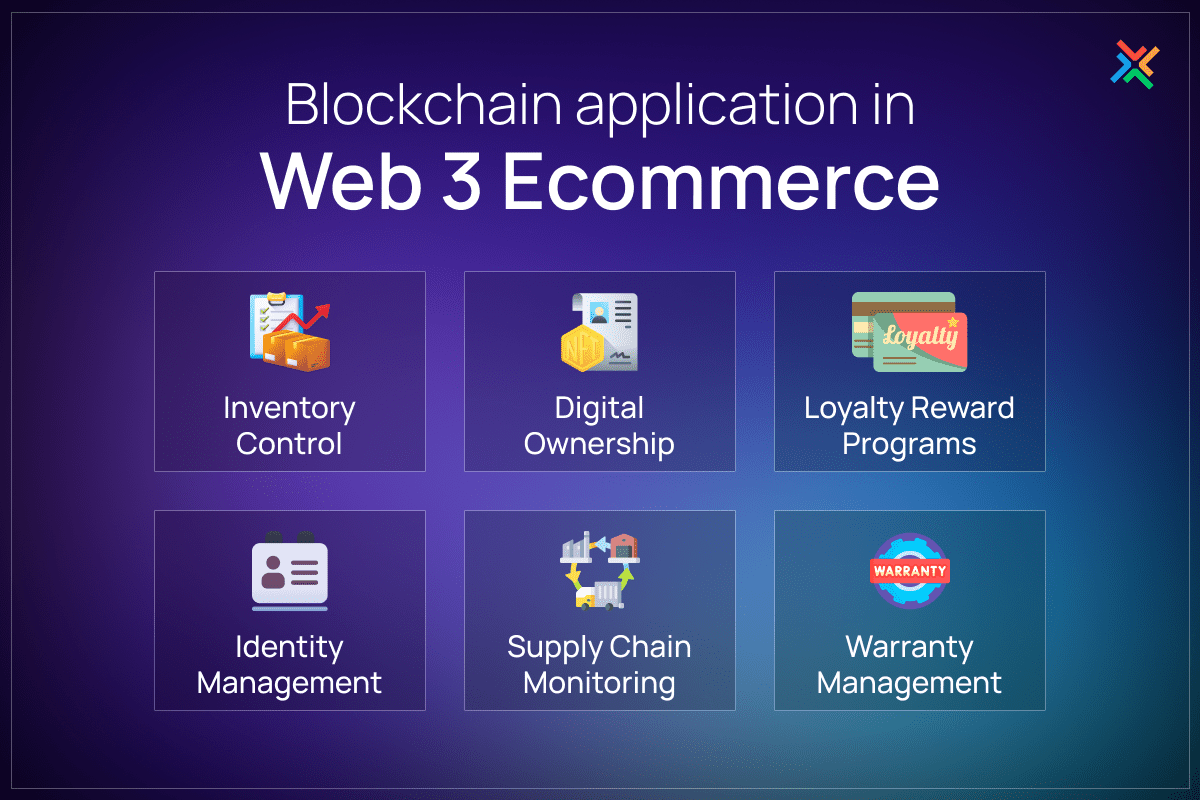Building Consumer-Centric Decentralized E-commerce Platforms with Web 3.0
June 14, 2024

Ayush Kanodia

The global eCommerce market is booming, expected to reach a staggering $8.1 trillion by 2026. While this growth signifies the convenience and reach of online shopping, a growing concern lies with the control exerted by centralized platforms. These platforms often collect huge amounts of user data, raising concerns about privacy and security. Moreover, centralized control can restrict user choice and transparency within the eCommerce ecosystem.
However, Web 3.0 – the next iteration of the Internet built on the foundation of decentralization, user ownership, and trustless systems. Decentralization shifts the control away from centralized authorities and towards a peer-to-peer network. User ownership offers individuals greater control over their data and digital assets. Trustless systems eliminate the need for intermediaries, boosting transparency and reducing dependency on third-party validation.
Essentially, Web 3.0 can reshape the eCommerce space by building consumer-centric platforms empowering consumers as well as eCommerce development companies in the UAE. It can facilitate a marketplace where users control their data, participate in decision-making, and interact directly with brands in a secure and transparent environment.

Building Blocks of Decentralized E-commerce
Centralized platforms often host product information on their own servers, creating a single point of vulnerability and control. Decentralized eCommerce disrupts this model by utilizing powerful new technologies.

Decentralized Storage Solutions
Decentralized storage solutions are innovative platforms – examples include IPFS (InterPlanetary File System) and Arweave – that offer permanent, censorship-resistant storage for product data, images, and other digital assets. Unlike traditional servers, data is distributed across a global network of computers, making it highly secure and resistant to outages or manipulation. This makes sure that product information remains readily available and verifiable by anyone on the network.
Blockchain Technology
Blockchain technology forms the backbone of secure and transparent transactions in decentralized e-commerce. Platforms like Ethereum and Solana utilize distributed ledgers, where every transaction is recorded and verified by a network of computers. This creates an immutable record of all activity, promoting trust and transparency between buyers and sellers. Smart contracts, self-executing agreements written on the blockchain, can automate various aspects of the transaction process, further optimizing and securing interactions.
Decentralized Autonomous Organizations (DAOs)
DAOs are community-driven entities governed by transparent rules encoded on the blockchain. Within the context of e-commerce, DAOs have the potential to revolutionize platform governance. They can facilitate a decentralized marketplace where a DAO, controlled by token-holding users, sets platform fees, moderates disputes, and guides the platform's development. This encourages a sense of community ownership and allows users to actively participate in shaping the e-commerce experience.
Decentralized Finance (DeFi)
DeFi protocols facilitate peer-to-peer financial transactions without the need for traditional intermediaries like banks. This allows users to tap into innovative payment options within decentralized e-commerce platforms. Cryptocurrencies can be used for hassle-free transactions while DeFi lending protocols could facilitate secure escrow services or microloans for purchases. By integrating DeFi, decentralized e-commerce platforms can offer greater financial flexibility and accessibility for both buyers and sellers.
Consumer-Centric Features and Functionalities
Decentralized eCommerce app development in the UAE shows a strong promise of offering a more user-centric experience by means of its several key features and functionalities.
Identity Management
In the current system, user profiles are often controlled by the platforms themselves. Decentralized e-commerce utilizes self-sovereign identity (SSI) solutions. These solutions allow users to manage their own digital identities, including profile information and purchase history. Users can choose what data they share with different platforms, providing them with greater control and privacy.
Personalized Shopping Experiences
Decentralized platforms can still offer personalized shopping experiences but with a crucial difference - user control. By granting platforms access to specific data points within their digital wallets, users can receive personalized recommendations and targeted marketing relevant to their interests. This creates a win-win situation, offering a more convenient shopping experience while keeping user data under their control.
Community-Driven Commerce
DAOs, as previously mentioned, can be harnessed to create a more community-oriented shopping experience. DAOs can be used for governance, allowing token-holding users to vote on platform features, product listings, and even marketing strategies. Additionally, DAOs could facilitate community curation of product offerings, allowing users to discover unique and niche items based on shared interests. Loyalty programs within DAOs could reward users for their participation and contributions to the platform, offering a stronger sense of community and shared ownership.
Tokenization of Products and Services
Blockchain technology facilitates the creation of non-fungible tokens (NFTs). These unique digital tokens can represent ownership of both physical and digital goods. For instance, an NFT could represent a limited-edition sneaker or a piece of digital art. NFTs can also represent access to exclusive memberships or loyalty programs within the platform. Tokenization offers new revenue streams for brands and creators, while also providing a secure and verifiable way for users to own and trade unique items.

Technical Considerations
Building a secure and user-friendly decentralized e-commerce platform requires careful consideration of several technical aspects.
Decentralized Payment Gateways
Efficient payment processing is crucial for any e-commerce platform. Decentralized solutions like MetaMask or WalletConnect allow users to connect their crypto wallets directly to the platform, facilitating secure and borderless transactions using cryptocurrencies. Additionally, ongoing development in decentralized finance (DeFi) is bringing innovative solutions like Uniswap or SushiSwap to the table. These protocols could offer functionalities like atomic swaps, where cryptocurrency is exchanged directly between users without a central intermediary.
Security Best Practices
Security is crucial in any online environment and even more so in a decentralized system. Secure coding practices, employing efficient testing procedures, and regular smart contract audits are essential to minimize vulnerabilities and protect user funds. Educating users on best practices for crypto wallet security and responsible interaction with smart contracts is also crucial for creating a trustworthy ecosystem.
Scalability and User Interface (UI)/User Experience (UX)
One of the current challenges of blockchain technology is scalability. While solutions like layer-2 scaling are being developed, processing a high volume of transactions on a single blockchain can lead to network congestion and slow transaction times. Decentralized e-commerce website solutions in the UAE need to be built with scalability in mind, potentially utilizing a combination of blockchain technologies and off-chain solutions to ensure a smooth user experience. Furthermore, a user-friendly interface (UI) and intuitive user experience (UX) are critical for mainstream adoption. Platforms need to be easy to navigate and understand, even for users unfamiliar with the intricacies of blockchain technology. By prioritizing an efficient and user-friendly experience, decentralized e-commerce can gain wider appeal and attract a broader consumer base.
Decentralized E-commerce as the Future of Shopping
The way we shop online is due for a makeover. Traditional e-commerce giants, while convenient, often come with baggage – data privacy concerns, lack of transparency, and a feeling of being just another cog in the machine. Decentralized e-commerce offers a refreshing alternative, one that puts you, the consumer, back in control. How? It can facilitate the creation of online marketplaces where you control your data, have a say in how things are run and can interact directly with brands in a secure and transparent environment. Utilizing advanced technologies like blockchain and tokenization, it promises to create a more user-centric shopping experience.
This shift won't just impact consumers. Traditional e-commerce platforms will likely need to adapt. Consumers are increasingly demanding more control over their data and privacy. Decentralized technologies offer solutions that traditional platforms may need to consider integrating to remain competitive.
The future of Web 3.0 e-commerce is already abuzz with exciting projects and initiatives. OpenSea, for example, is leading the charge with NFT-powered marketplaces for digital goods. Decentraland is building a virtual world where shopping integrates into the immersive experience. These are just a glimpse of the vast potential that decentralized e-commerce offers.
At WDCS Technology, we can help you build innovative and decentralized e-commerce solutions. We understand the intricacies of decentralized technologies and their potential to revolutionize the online shopping experience. Are you a brand looking to hire eCommerce developers in the UAE and explore the possibilities of decentralized e-commerce? We invite you to learn more about our services or contact us to discuss your project. Together, let's build the future of consumer-centric e-commerce, a future where shopping online is secure, transparent, and driven by the power of the community.
Build a secure, user-owned marketplace with WDCS's decentralized e-commerce solutions.
Web 3.0 eCommerce is the future and we can help you build one. At WDCS, we build secure, e-commerce platforms powered by blockchain where users control their data.